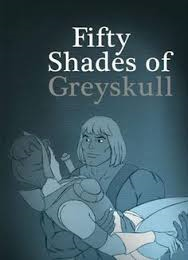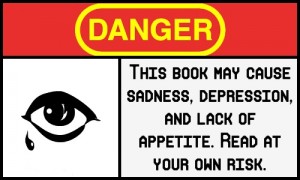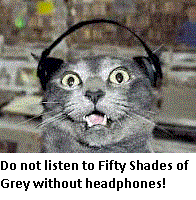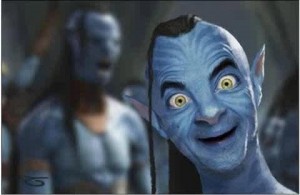 I’ve had more than a few people ask why I haven’t embraced digital publishing and started uploading books to Amazon. While the idea is certainly enticing, I don’t think it’s the quick road to international readership Amazon wants it to be. Not yet. I think I’d have more success standing naked on a street corner waiving a sign to encourage people to buy my book. The sign wouldn’t exactly work, but the local news story of the crazy naked guy would grab reader’s attentions.
I’ve had more than a few people ask why I haven’t embraced digital publishing and started uploading books to Amazon. While the idea is certainly enticing, I don’t think it’s the quick road to international readership Amazon wants it to be. Not yet. I think I’d have more success standing naked on a street corner waiving a sign to encourage people to buy my book. The sign wouldn’t exactly work, but the local news story of the crazy naked guy would grab reader’s attentions.
Self-publishing and e-publishing will always have a remarkably high signal-to-noise ratio. E-publishing has made it so painfully easy that Amazon is filled with everything from Twilight ripoffs to books like “Ten women I’d like to pork”. I have yet to read a great self-published book. Some are good, sure, but great? No – not yet. And the reason for that is the “George Lucas Syndrome.”
George Lucas was a visionary, and the original Star Wars film remains a cinematic masterpiece. But what about those prequels? They’re kind of like cinematic supermodels. Pretty to look at, but vapid and boring. Sure they sold plenty of tickets and DVD’s. I think you could film a Jedi opening cans of tuna for two hours with a light saber and still make millions. Fans love Star Wars. But the stories in the new prequels were beyond terrible. They made very little sense. Stilted dialogue from actors we know can act, cheesy lines, retarded comic relief tropes no other film would ever be able to get away with. How the hell did this happen?
All three original Star Wars movies had producers. In movie terms, a producer is a lot like a good editor. The producers job isn’t to make the movie, it’s to make sure the movie gets made well. Producers help shape the story, construct scenes that flow together, and build a coherent film people will want to watch. With the new prequel, George acted as the sole editor. He funded the movies himself, skipping the big studios altogether. There was nobody to tell him “Hey, George, why does the trade federation want to blockade a planet? Wouldn’t that stop trade?” Or “I know you want to sell toys, but do we really need a twenty minute pod-racing scene?” In the end, the Star Wars prequels have become effects-laden soulless films. And the truly sad reality is that there is a good story in there, buried under all the crap. A story desperately in need of an editor. You could argue that my point is invalid since the prequels made a lot of money. But consider this: if George made the prequels first – if “Phantom Menace” came out in 1977, the series would’ve ended there.
Self publishing authors become mini-George Lucases. Lucasi… whatever. Without good editing, you’re writing in a vacuum. Stories just don’t work that way. It’s great if you’re writing just for yourself, but then why are you putting your work on Amazon? We write to be read, and that means writing the kinds of things people want to read. And not just friends and families and your great aunt Gertrude who sends you Tonka trucks every Christmas even though you’re no longer five. Some e-pub authors actually do hire editors, and as a result their work has less grammatical problems and tends to stand out. But few for-hire editors help a writer shape their story. Telling your clients their 400-page opus about elf-torture set in a dungeon is unreadable crap? That’s not a very good business model.
Not everything in the e-publishing world suffers from George Lucas syndrome. There are plenty of folks who can write well and don’t need much (if any) editing. What happens to those books? That brings me to my second point. When you self publish, not only are you the editor, you’re also the marketer and publicist. You need to actually go out and sell your book. That means blogging, tweeting, posting on forums, and if you’re really willing to spend some dough, buying ads. Doing all of those things requires a lot of time. Time you’d be better off spending writing and polishing your story. Most writers aren’t independently wealthy. We have day jobs, which means at best 2-3 hours a night writing with a few nights off every week so you can pet your kitty and save your marriage. If you’re spending most of that time self-promoting, how much are you actually writing? What about editing? There are plenty of anecdotal stories about authors who churned out a book in a couple of weeks only to have it become a bestseller.
First, that’s extremely rare and it’s usually significantly impacted by luck. When the Amazon e-publishing platform was young, there was less crap to churn through, so a few decent novels managed to grab significant sales. I’m willing to bet those novels wouldn’t have made it if published today under the sheer volume of titles clogging up the digital bookstore. Secondly, some of those books only made it because they latched on to a gimmick: teenage vampire drama right when vampires were a hot item and the market didn’t have enough. Or badly written lusty sex books because, let’s face it, we giggle when someone says penis.
Amazon isn’t a nonprofit. Providing infrastructure to electronic self-publishing is a brilliant business model because it costs them so little and brings in so much revenue. The Kindle is finally cheap enough to have a wide install base (and consequently, I’m convinced that’s why Fifty Shades is so popular – nobody has to be seen with the book open, but if it’s on a Kindle, then nobody knows what you’re reading unless you tell them). Amazon isn’t going to promote you, which means you’ve got to do it. Self-promoting is damn hard work, and you see very little return on it. Ewan Morrison wrote a really good article on pitfalls of relying on social media to sell. In short, social media sells social media. When was the last time you got a tweet or read a facebook post about something, then immediately ran out to get it? Worse, unless you’re a star blogger, you probably have a limited circle of social contacts. You can try asking friends of friends to go buy your book, but frankly that comes off as a mild step above door-to-door Amway sales.
Frankly, I’d rather spend my time writing. If I get desperate, I’ll stand on the corner, naked with my sign: Buy my e-book about vampire elf-torture!
 I’ve often commented that Fifty Shades of Grey’s success stemmed from the simple fact that e-readers were prevalent and the time was right for anonymously reading sultry fiction. I certainly can’t count it as riveting literature in the same category as Lolita, though I’m sure author E.L. James has less concerns over literary merit than sales. Fifty Shades serves as an ideal tale of marketing, right-place-right-time, and tenacity.
I’ve often commented that Fifty Shades of Grey’s success stemmed from the simple fact that e-readers were prevalent and the time was right for anonymously reading sultry fiction. I certainly can’t count it as riveting literature in the same category as Lolita, though I’m sure author E.L. James has less concerns over literary merit than sales. Fifty Shades serves as an ideal tale of marketing, right-place-right-time, and tenacity.



